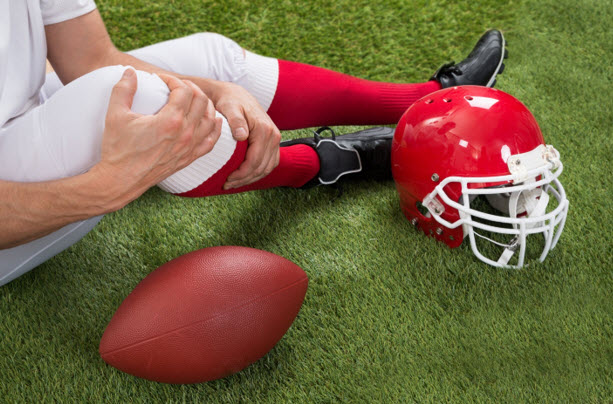Sports injuries happen – whether it’s due to contact sports incidents or just muscle sprain, intense athletics will often lead to injuries. Sports injuries are a large part of why teams and leagues have to invest in sports insurance. Each sport has different potential liabilities, so insurance packages are typically sold by sport – football insurance, basketball insurance, and so on – to match the needs of each sport.
While you can’t stop all injuries from happening, there are certain measures you can take as a player, coach, or sports league administrator to reduce the occurrence of injury. Take these preventative steps to reduce sports injuries so that the game can go on as planned.
Warm Up and Cool Down
Before every practice or game, players should warm up with light exercise before getting into the sport itself. Warm up drills physically warm your body up and increase blood flow through your muscles. They also get your heart rate up, helping to prep you for the upcoming workout. Make sure all players warm up for 10 to 15 minutes with light movements that utilize the muscles you’ll use during the sport itself. The same warm up doesn’t work for different sports if different movements or muscle groups are being targeted.
You should also do cool down exercises after games and practices to stretch out muscles and gradually slow down. Cool down exercises can help your body adjust back to normal and feel out any problem areas or potential injuries from the game.
Stretch
Stretching is absolutely vital to prevent injuries. All players should stretch before and after every game and practice to relieve tightness in the muscles and prepare for exercise. Dynamic stretches are the best way to warm up and stretch out muscles before exercise. Dynamic stretches incorporate stretching and movement, and studies have shown that they are significantly more effective in preparing your muscles for the upcoming exercise. Focus on the muscles that you will use during the game or practice. Look for stretches that mimic the muscle movement you’ll be practicing so that the proper muscles are ready. Stretching will improve flexibility, so you can move better while playing sports without pulling or tearing muscles.
Wear the Appropriate Gear
Wearing the right safety equipment makes a huge difference when it comes to preventing injuries – that’s why most gear was made in the first place. Regardless of what sport you’re playing, there’s probably gear that you’ll need. Every sport requires the right kind of shoes – make sure players wear the proper foot attire for traction and to reduce the chances of foot or ankle injury.
Depending on what sport you’re playing, there is other equipment like pads, shin guards, mouth guards, and so on. Sports like football require a helmet. If you’re injury prone or have experienced sports injuries before, you may want to take extra steps to prevent further injury. Extra protective gear won’t hurt, and it could be the factor that saves you from another injury.
Understand the Rules and Risks
Knowing and following the rules of your sport will prevent injuries. Coaches should instruct players on all rules, fouls, and any other regulations of the game. This will not only result in a cleaner game, but it could prevent injuries. Explain to players why certain rules are in place and how they are meant to keep players safe. A rule will likely be followed more closely if players understand that it is for the health of the players on the field. Knowing the risks for injury can help players, coaches, referees, and volunteers to be more vigilant.
Rest
Humans need rest after intense physical exercise. Even if you’re on a serious training schedule, it is vital to rest after workouts and take rest days in general to let your body recover. Overworking your body will only hurt it in the long run. Take days off to recuperate. Players should also be sure to get ample sleep each night to recover, and stay hydrated. Proper rest can make all the difference, and it will prime your body for the next big game.
Don’t Play If You’re Hurt
If you’re hurting, don’t play. It can be hard to take yourself out of the game, but if a minor injury springs up or something feels off, it’s better to rest. Pushing through pain could exacerbate the problem and turn your injury into something more serious. It’s better to miss one practice or game to recover rather than push through it and end up hurt for multiple games or even the season.
Take preventative steps to protect your body from injury when you’re playing sports. Sports injuries can be serious, and could leave you on the bench for the season or even for life. Take care of your body so that you can keep playing and having fun on the field, whatever your sport may be.
